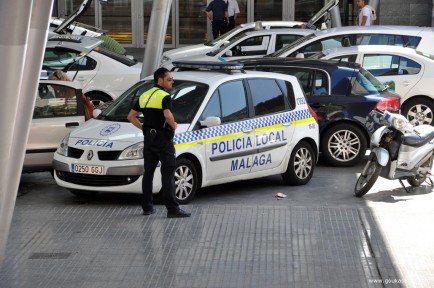
The fine for getting caught driving under the influence of drink or drugs in Spain could soon double to €1,000
Spain’s cabinet last week approved a proposed reform to the country’s road safety laws that could drastically alter its driving landscape.
Chief among the reforms is the proposed 130 kmh speed limit to be introduced to some sections of Spain’s tollways and motorways. However, the reform that could have the most serious repercussions for drivers in Spain could be the increased fine for driving under the influence of drugs or alcohol – doubling from €500 to €1,000…
During the announcement of the reform, Interior Minister Jorge Fernandez Diaz revealed that of all the fatal road accidents in 2012, 47.3 per cent of those killed were found to have increased levels of alcohol, drugs or prescription medication in their bloodstream.
As a result of those findings, Spanish authorities are finally stamping down hard on not only driving under the influence, but also on inebriated pedestrians who cause traffic infractions, and even drivers who are found to have trace amounts of alcohol or drugs in their system.
The “mere presence” of illegal substances in the body will be sufficient cause for Spain’s traffic police to impose a fine. In the UK, drink driving is not merely extremely taboo; it is barely an issue in most parts of the country. It just isn’t done. The mentality in Spain is different. It is not acceptable to drink and drive of course, but the practice is more commonplace, and society doesn’t reprimand hard enough those that admit to it.
“These reforms take Spain one step closer to the expected zero tolerance for driving,” said Francisco Canes, president of the DIA accident victims group. “No person should drive after drinking or using illegal substances. Hopefully, this increased fine will drastically reduce the number of traffic accidents caused by drink or drugs.”
The hope is that this new dose of tough love will slowly but surely change the culture on Spain’s roads – from having a few cervezas then hopping in the Seat Leon for the short drive home, to tailgating cars too closely at speeds that are already too fast.
Some may argue that an increased speed limit will only encourage would-be speed racers to push their limits even further. But evidence from Germany – with their famous no-speed-limit autobahns – suggest that the opposite is almost true. The thrill of pushing past the speed limit is removed; the urge to scoot past law-abiding drivers diminished.
Of course, Spain’s highway authorities will have to consider the sections of road permitted the higher speed limit very carefully if the changes – which are expected to come into play next March – are to be a success.
Other reforms include extending the obligatory wearing of helmets for all cyclists, not just minors; banning under-12s from travelling in the front passenger seat, and prohibiting the use of radar detectors.
 en
en



 Vlaams-Nederlands
Vlaams-Nederlands
0 Comments
Leave a Comment
DISCLAIMER
The opinions and comments expressed by contributors to this Blog are theirs alone and do not necessarily reflect the views of VIVA Homes Under the Sun Ltd, any of its associated companies, or employees; nor is VIVA to be held responsible or accountable for the accuracy of any of the information supplied.
Have you got something to say?